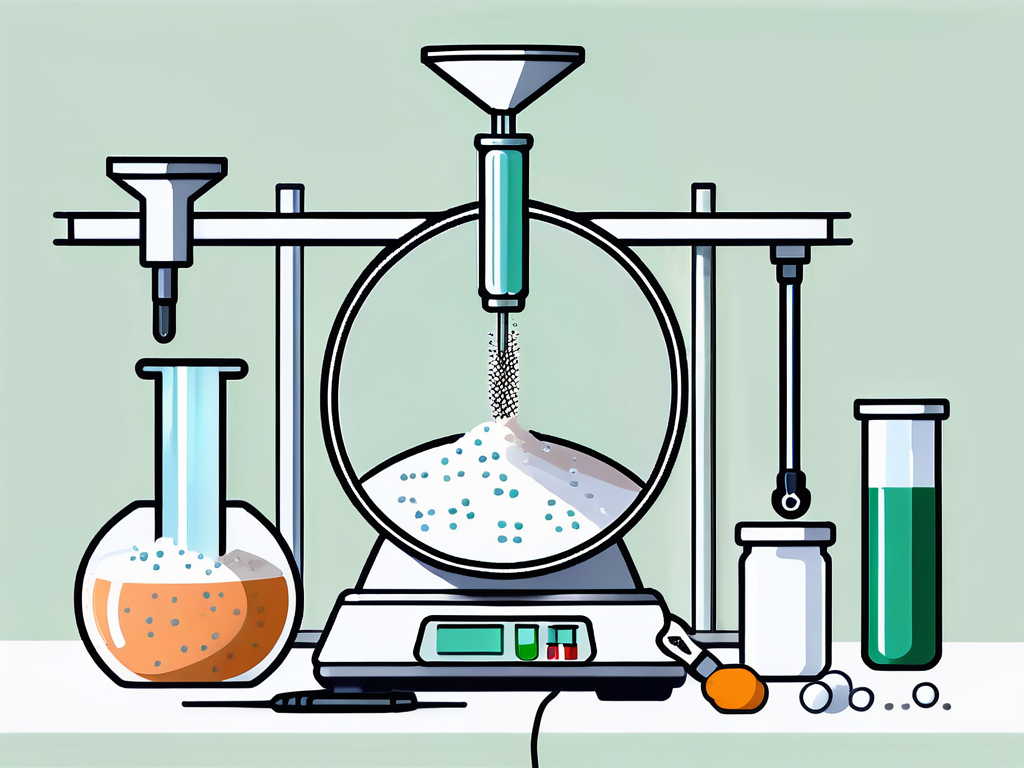In the world of compounding pharmacy, the term ‘excipient’ is a key player. It’s one of those terms that you might not hear every day, but it plays a crucial role in the creation of medications. In this glossary entry, we’ll delve into the nitty-gritty of what an excipient is, why it’s important, and how it’s used in compounding pharmacy.
Before we dive in, let’s first establish what compounding pharmacy is. Compounding pharmacy is a specialized area of pharmacy that involves the preparation of medications to meet the unique needs of patients. It’s a practice that dates back to the origins of pharmacy, yet it remains central to the provision of personalized medicine today.
Definition of Excipient
At its most basic, an excipient is a substance that is included in a medication to serve a specific function. It’s not the active ingredient—that’s the part of the medication that treats the condition. Instead, an excipient plays a supporting role, helping to deliver the active ingredient or improve its stability or usability.

Excipients can be derived from a variety of sources and come in many different forms. They can be liquids, powders, granules, or even gases. The specific type and form of excipient used will depend on the needs of the medication and the patient.
Types of Excipients
There are many different types of excipients, each with its own unique properties and uses. Some of the most common types include fillers, binders, disintegrants, lubricants, and coatings. Fillers are used to add bulk to a medication, binders help to hold the ingredients together, disintegrants help the medication to break apart in the body, lubricants prevent the ingredients from sticking together, and coatings improve the appearance and taste of the medication.
Other types of excipients include solvents, which are used to dissolve other ingredients; emulsifiers, which help to mix ingredients that would otherwise separate; and preservatives, which help to prevent the growth of bacteria and fungi. Each of these excipients plays a crucial role in the creation of a medication, helping to ensure its effectiveness, safety, and acceptability to the patient.
Role of Excipients
Excipients play a wide range of roles in medications. One of the most important is to help deliver the active ingredient to the site in the body where it’s needed. This can involve helping the active ingredient to dissolve in the body, helping it to be absorbed into the bloodstream, or helping it to reach a specific part of the body.
Excipients can also improve the stability of a medication, helping to ensure that it remains effective for as long as possible. This can involve protecting the active ingredient from light, heat, or moisture, or preventing it from reacting with other ingredients. Excipients can also improve the usability of a medication, for example by making it easier to swallow, improving its taste, or reducing its side effects.
Use of Excipients in Compounding Pharmacy
In compounding pharmacy, the use of excipients is particularly important. This is because compounding pharmacists often need to create medications that are tailored to the specific needs of a patient. This can involve changing the form of a medication, for example from a tablet to a liquid, or changing the dose of the active ingredient. In both cases, excipients can play a crucial role.

For example, if a compounding pharmacist needs to create a liquid medication for a patient who can’t swallow tablets, they might use a solvent to dissolve the active ingredient, a sweetener to improve the taste, and a preservative to prevent the growth of bacteria. Each of these excipients would be carefully chosen to ensure the safety and effectiveness of the medication, as well as its acceptability to the patient.
Selection of Excipients
The selection of excipients in compounding pharmacy is a complex process that requires a deep understanding of the properties of each excipient and how it interacts with the active ingredient and other excipients. The compounding pharmacist must also consider the needs of the patient, including any allergies or sensitivities they might have.
For example, if a patient is allergic to a particular preservative, the compounding pharmacist would need to choose a different preservative, or perhaps formulate the medication without a preservative. Similarly, if a patient has difficulty swallowing, the compounding pharmacist might choose a lubricant that helps the medication to slide down the throat more easily.
Preparation of Excipients
The preparation of excipients in compounding pharmacy is also a complex process. It involves carefully measuring and mixing the excipients, as well as ensuring that they are of the highest quality. This can involve testing the excipients for purity, potency, and stability, as well as ensuring that they are stored and handled correctly.
Once the excipients have been prepared, they are combined with the active ingredient to create the final medication. This can involve a variety of techniques, including grinding, mixing, dissolving, and coating, depending on the needs of the medication and the patient.
Regulation of Excipients
Like all aspects of pharmacy, the use of excipients is heavily regulated. In many countries, excipients must meet strict standards for safety, quality, and efficacy. These standards are set by regulatory bodies, such as the Food and Drug Administration (FDA) in the United States, and are enforced through regular inspections and audits.
In addition to these standards, compounding pharmacists must also adhere to professional standards and guidelines, such as those set by the International Pharmaceutical Excipients Council (IPEC). These guidelines provide detailed advice on the selection, preparation, and use of excipients, as well as the documentation and quality control procedures that should be followed.
Excipient Safety
The safety of excipients is a major concern in compounding pharmacy. While most excipients are considered safe for most patients, there are some that can cause allergic reactions or other side effects in certain individuals. For this reason, compounding pharmacists must carefully consider the safety of each excipient they use, and monitor patients for any adverse reactions.
In addition to individual safety considerations, compounding pharmacists must also consider the safety of the overall medication. This can involve testing the medication for stability, potency, and purity, as well as ensuring that it is stored and handled correctly. All of these steps help to ensure that the medication is safe and effective for the patient.
Excipient Quality
The quality of excipients is another major concern in compounding pharmacy. Poor-quality excipients can affect the safety and effectiveness of a medication, as well as its acceptability to the patient. For this reason, compounding pharmacists must ensure that the excipients they use are of the highest quality.
This can involve sourcing excipients from reputable suppliers, testing the excipients for purity and potency, and storing and handling the excipients correctly. It can also involve documenting the source and quality of each excipient, as well as any testing that has been done. All of these steps help to ensure that the excipients, and the medications they are used in, meet the highest standards of quality.
Conclusion
Excipients play a crucial role in compounding pharmacy, helping to create medications that are safe, effective, and acceptable to patients. Whether they’re helping to deliver the active ingredient, improve the stability of the medication, or make the medication easier to use, excipients are a key part of the compounding pharmacy toolkit.

While the use of excipients in compounding pharmacy is complex and heavily regulated, it’s also a field that offers many opportunities for innovation and personalization. By understanding the properties and uses of different excipients, compounding pharmacists can create medications that are truly tailored to the needs of their patients. And that’s what compounding pharmacy is all about.


